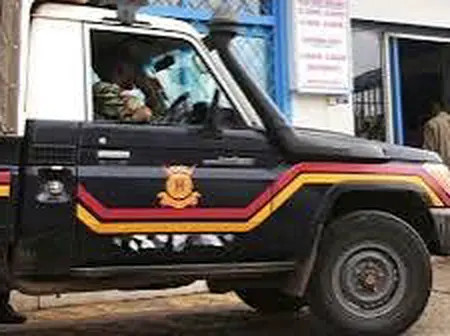Marinos Alexandros, a supporter of Uganda’s National Unity Platform (NUP), died after enduring a traumatic journey involving torture and exile. He returned home in the hope of healing.
Her tragic yet revealing story lays bare the growing danger faced by asylum seekers, even in places that were once considered safe.
Marinos, a NUP member, died on Sunday morning after returning to Uganda to seek treatment close to her family and loved ones.
She was abducted on March 30, 2022 in Mbuya by Ugandan security agents. She was taken to the Chieftaincy of Military Intelligence (CMI), where she reportedly endured “incredible torture and sexual violence”.
Bobi Wine claims that Marinos was arrested ‘for playing Bobi Wine’s music on loudspeakers’.
Following her release after weeks of illegal detention, she continued to receive death threats and survived a violent home raid.
Fearing for her life, Marinos fled to Nairobi and sought refuge in a UNHCR camp, but she was subjected to another abduction attempt there.
The trauma, loneliness and poor living conditions in exile took a severe toll on her health. She finally returned to Uganda a few weeks ago to receive treatment near her family, but died at around 1:30 on Sunday.
Bobi Wine lamented that “the struggle for freedom and democracy in Uganda is poorer without you,” describing her demise as a brutal reminder of ongoing state oppression.
Kenya has long been seen as a safe haven for political refugees. Marinos Alexandros’ case among others, however, have raised alarm among human rights groups over its commitment to international asylum protections.
In November 2024, Dr. Kizza Besigye (a four-time presidential contender) vanished from Nairobi. He reappeared in a Ugandan military court, facing charges after being abducted on Kenyan soil, reportedly without any extradition process. Amnesty International condemned the incident, warning that “Dr. Besigye’s abduction is part of a growing and worrying trend of transnational repression with governments violating human rights beyond their borders” and that it was “designed to send a chilling message to those whose opinions dissent from the Ugandan government.”
In 2021, Ethiopian businessman Samson Tekklemichael was seized in broad daylight in Nairobi’s upscale Kileleshwa, an event caught on video and shared widely. Though the circumstances of his abduction remain murky, many believe he was forcibly removed and handed over to Ethiopia, a grim indication that even Nairobi’s affluent streets offer no security for dissenters.
In October 2024, at least seven Turkish asylum seekers (recognized refugees fleeing persecution in Türkiye) were abducted in Nairobi. The three were later released, but three, including Öztürk Uzun, Alparslan Taşçı, and Hüseyin Yeşilsu, remain missing. Amnesty International Kenya warned that such abductions “constitute a breach of both Kenya and international refugee law,” specifically the principle of non-refoulement, which prohibits returning refugees to danger zones.
Human rights groups decried the forced deportations: “Abduction and forced return to countries they fled directly violates the principle of non-refoulement enshrined in Kenyan law,” Amnesty International Kenya stated.
Pakistani investigative journalist Arshad Sharif fled to Kenya in 2022 to escape death threats in his homeland. In October of the same year, he was shot dead by Kenyan police at a roadblock near Nairobi, officials calling it a case of “mistaken identity.” A Pakistani probe, however, labelled it a “planned, targeted assassination,” and not a mere misidentification.
In July 2024, a Kenyan high court ruled the killing unlawful, awarding Sh10 million to Sharif’s family, and affirming that the state had violated his rights to life and dignity. The Committee to Protect Journalists hailed it as “an important step towards ending impunity,” urging proper prosecution of those responsible.
Two South Sudanese dissidents (lawyer Dong Samuel Luak and opposition politician Aggrey Idri were abducted in Nairobi in 2017 by suspected agents of the South Sudanese government. Their bodies were later found in Juba; human rights organizations confirmed they were executed by state forces. Their disappearance exposed alarming collusion and a failure of protection for refugees in Kenya.
In January 2025, Tanzanian journalist-activist Maria Sarungi was abducted in Nairobi by armed men and nearly deported back to Tanzania. She was released after hours, but the incident sparked outcry from activists and international observers. Amnesty International responded swiftly, calling for border roadblocks and heightened protections. “This is part of a growing and worrying trend of transnational repression,” said the Guardian, adding that Kenya’s sanctuary status was at risk.

Leave a Reply